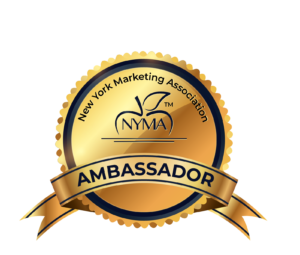The legal industry is known for being traditional in its approach to marketing. However, in recent years, we’ve seen a shift. Influencer marketing , once reserved for lifestyle and fashion brands, has found its place in the legal world. It’s a powerful tool that can amplify your message, create trust, and help generate leads. As more people turn to online platforms for information, leveraging influencers to boost your personal injury advertising can significantly enhance your reach. Influencer marketing in the legal industry is an underutilized strategy.
The Rise of Influencer Marketing in the Legal Space
Influencer marketing has grown rapidly in the last decade. It involves partnering with individuals who have established a following on social media. These influencers use their platforms to promote products and services, helping brands connect with potential clients in an authentic way. For law firms focused on personal injury marketing, this approach can make a huge difference.
In the legal space, finding the right influencers means targeting people whose followers align with your potential clients. These can range from safety advocates, local personalities, or even industry experts. By using influencers, personal injury attorneys can present their services in a more relatable way, tapping into the trust that influencers have already built with their audiences.
Difference Between Influencers and Testimonials
When it comes to marketing for personal injury law firms, there’s a clear difference between influencers and testimonials. Both are valuable but serve different purposes. Testimonials are endorsements from satisfied clients or legal professionals who have worked with your firm. They provide personal and direct evidence of your capabilities, which helps build credibility.
Influencers, on the other hand, are not necessarily your clients. They are individuals with large followings who can share your message with a wider audience. While a testimonial might sway someone already considering your services, an influencer can bring new potential clients into your funnel. Influencers are often used to build awareness and generate leads, whereas testimonials are more effective for those close to making a decision.
When and How to Use Influencers vs. Testimonials
It’s essential to understand when to use influencers and when to rely on testimonials in personal injury marketing. If your goal is to increase brand awareness and reach new audiences, influencers are the better option. They can help spread the word about your services to people who might not be actively searching for a personal injury attorney but are influenced by the content they consume online.
On the other hand, testimonials are more useful when you’re trying to close a deal or strengthen your credibility with potential clients. When a lead is deep in the funnel, a positive testimonial from a former client can be the deciding factor. Combining the broad reach of influencers with the personalized power of testimonials creates a well-rounded marketing approach.
How Influencers Amplify Your Message
There’s a reason why influencer marketing has been so successful in industries like fashion, tech, and travel—it works. When done correctly, it can also work for legal firms. Influencers bring three significant benefits to the table: reach, engagement, and trust.
First, influencers have built-in audiences that trust them. This reach is invaluable for personal injury attorneys. Instead of relying solely on paid advertising, where users may scroll past your ad, influencers present your message in a way that feels genuine.
Second, engagement is higher with influencer marketing. Followers of influencers tend to be highly engaged, meaning they are more likely to interact with the content. Whether it’s liking, sharing, or commenting on a post, that engagement translates into more eyes on your brand.
Finally, trust is key. Legal services require a high degree of trust, and influencers help bridge that gap. If a trusted influencer endorses your firm, it builds immediate credibility with their followers, leading to potential lead generation and conversions.
Strategies for Finding the Right Influencers
Finding the right influencer is critical to success. Not all influencers will be a good fit for personal injury advertising. Here are some key strategies to help you find the right partner.
Research: Tools like BuzzSumo or Influencity can help you find influencers who are already talking about relevant topics. Look for influencers who engage with your target demographic, whether it’s local audiences or people interested in legal services.
Alignment: Make sure the influencer’s values and audience align with your firm’s message. If the influencer regularly promotes products or services that contradict your firm’s brand, it could backfire.
Micro-Influencers: Sometimes smaller, niche influencers are better than those with massive followings. Micro-influencers tend to have higher engagement rates and can provide more targeted exposure to your ideal client base.
How to Use Influencers Throughout the Marketing Funnel
Influencers can be used at every stage of the marketing funnel, from awareness to conversion.
At the top of the funnel, influencers are used to create awareness. They introduce your firm to a new audience, making people aware of your services before they’ve even considered hiring an attorney.
In the middle of the funnel, influencers can help solidify your firm as a trusted option. Influencers can share more detailed content, such as stories about how your firm helped a client or an educational piece about personal injury law. This builds trust with the audience.
Finally, at the bottom of the funnel, influencers can help drive conversions. Partnering with influencers to offer exclusive consultations or deals can push a prospect to take action. These partnerships can provide the final nudge for someone on the fence.
Measuring Success in Influencer Marketing
As with any marketing strategy, it’s important to measure success. When using influencers for personal injury marketing, track key metrics like engagement rates, click-throughs, and conversions. Compare these metrics to the cost of influencer partnerships to determine your return on investment.
Regularly assess which influencers are driving the most traffic and leads. This allows you to adjust your strategy and focus on the partnerships that bring the best results.
Conclusion: The Future of Influencer Marketing for Personal Injury Law Firms
Influencer marketing in the legal industry is here to stay, and it’s time for personal injury law firms to take advantage. By finding the right influencers and using them strategically, you can enhance your personal injury advertising efforts and generate more leads. With the right strategy, influencers can become a vital part of your overall marketing plan, helping you grow your brand and connect with potential clients in new and engaging ways.
Explore influencer partnerships today to enhance your personal injury marketing and drive growth for your firm.



